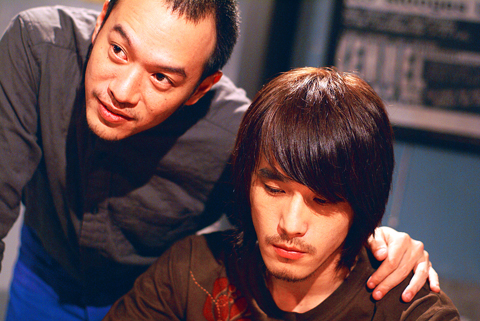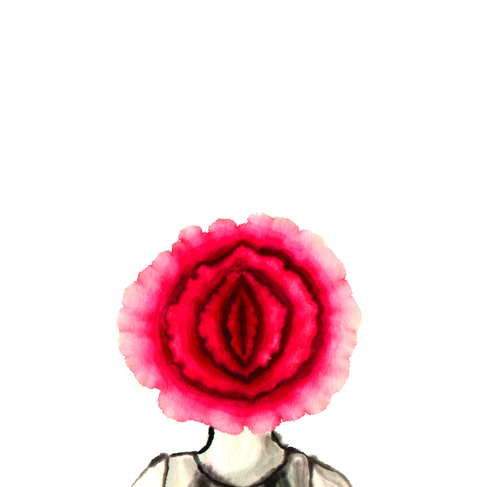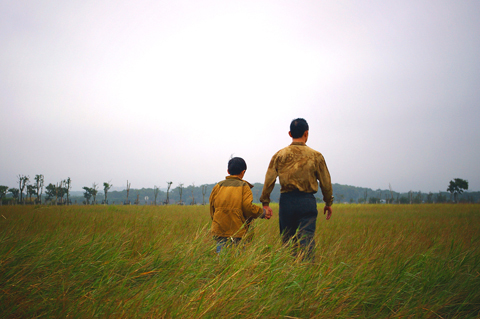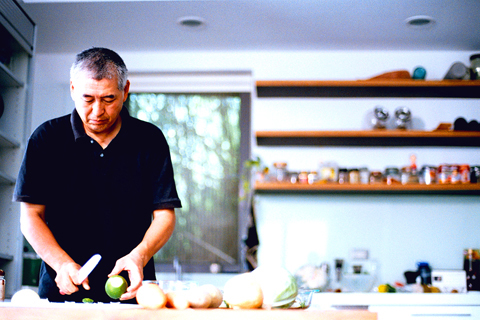The Golden Harvest Awards (金穗獎) was where Taiwanese New Wave auteur Ke Yi-cheng (柯一正) was discovered and embarked on his directing career. It was where documentary filmmaker Yang Li-chou (楊力州) found the courage to go on when nobody believed in him, including himself. And it was where director Zero Chou (周美玲) earned three months of living expenses.
This year, Golden Harvest celebrates its 30th anniversary as Taiwan's oldest film festival dedicated to supporting experimental filmmaking. Organized by the Chinese Taipei Film Archive (國家電影資料館), the annual event may not be as popular or well known as the Golden Horse (金馬獎) or Taipei (台北電影節) film festivals, but it is looked upon as a highly regarded platform for film students and young filmmakers.

A look at past lineups shows why the event is said to be the cradle of Taiwanese cinema: luminaries such as Tsai Ming-liang (蔡明亮), Ang Lee (李安) and Wan Jen (萬仁), as well as younger talents Lin Jing-jie (林靖傑), Wei Te-sheng (魏德聖) and Tom Shu-Yu Lin (林書宇), all found early recognition here.
To mark the anniversary, 48 films have been selected from among the festival's archive collection of nearly 500 past nominations for a retrospective program that may include the only public screenings of many of these works for years to come.
As the winner of the first Golden Harvest Award, legendary director Wang Chu-chin's (王菊金) experimental film Years of Wind (風車, 1978) begins the journey down memory lane with its mix of a male train passenger's flashbacks and black-and-white dream sequences. Best known for his The Legend of the Six Dynasty (六朝怪談, 1979) and On the Society File of Shanghai (上海社會檔案, 1981) that catapulted Lu Hsiao-fen (陸小芳) to stardom, Wang is an influential figure in Taiwanese cinema because of his unique blend of social realism with genre cinema.

Ang Lee's student film I Wish I Was by That Dim Lake won the future Oscar-winner his first gong in 1982. The film is a story about a down-and-out actor torn between his dreams and real life, which was, perhaps, a prescient choice of subject given the director's six years spent as a house-husband before his feature debut Pushing Hands (推手, 1991).
The Golden Harvest was the only Taiwanese festival to encourage filmmakers to use the 8mm format, and this year's retrospective includes Tsai Ming-liang's experimental 8mm short UFO Rhapsody (飛碟狂想, 1981), which will be screened along with Mai Da-jie's (麥大傑) single-frame 8mm animation short, Check (將軍, 1982). Another notable screening is seven-time Golden Harvest Award winner and elusive contemporary artist Kao Chung-li's (高重黎) 1984 work That Photograph (那張照片), an examination of photographer Josef Koudelka's work.
Six Golden Harvest Award recipients were invited to make short films about their thoughts and reflections on Taiwanese cinema, society and culture.

The results include Popcorn (爆米花) directed by Ke Yi-cheng (柯一正) who in the film searches for his mentor, Wang Chu-chin, and makes humorous observations on how a film's popularity can be measured by the rate of popcorn consumption at movie theaters and how the Golden Harvest trophy can be put to good use in the kitchen.
Zero Chou's The Wheat Doesn't Die (麥子不死), follows the tradition of corny romance and is a hilarious story about a gangster who mistakenly thinks that Taiwanese cinema is about to take off again and so orders that a director be kidnapped and held for ransom.
Diva Viva (宇宙歌女) is Wu Mi-sen's (吳米森) whimsical translation of the country's social and political chaos into a sci-fi comedy about a war between a singing alien and a hysterical mother played by musician Ma Nien-hsien (馬念先) in drag.

As for works by the up-and-coming generation of filmmakers, 36 films selected from among 115 entries will compete for NT$3 million in prize money. The biggest surprise this year is the animation program, which offers more diversity in style and more maturity in technique and storytelling than ever. Experimental cinema, on the other hand, seems to have hit a slump in Taiwan, and there is an ongoing debate as to whether or not the experimental film award should be discontinued or expanded to include video art and multimedia.
Experimental director Lin Tay-jou (林泰州), Kao Chung-li and veteran filmmaker and festival curator Angelika Wang (王耿瑜) will examine this issue at the Eslite Bookstore Dunnan branch on July 26, while directors Ke Yi-cheng, Angelika Wang, Yang Li-chou and Wu Mi-sen, along with other past winners, will share their Golden Harvest Festival stories at the Eslite Bookstore Dunnan branch on July 27.
The festival will then tour the rest of the country next month and September.


In the March 9 edition of the Taipei Times a piece by Ninon Godefroy ran with the headine “The quiet, gentle rhythm of Taiwan.” It started with the line “Taiwan is a small, humble place. There is no Eiffel Tower, no pyramids — no singular attraction that draws the world’s attention.” I laughed out loud at that. This was out of no disrespect for the author or the piece, which made some interesting analogies and good points about how both Din Tai Fung’s and Taiwan Semiconductor Manufacturing Co’s (TSMC, 台積電) meticulous attention to detail and quality are not quite up to

April 21 to April 27 Hsieh Er’s (謝娥) political fortunes were rising fast after she got out of jail and joined the Chinese Nationalist Party (KMT) in December 1945. Not only did she hold key positions in various committees, she was elected the only woman on the Taipei City Council and headed to Nanjing in 1946 as the sole Taiwanese female representative to the National Constituent Assembly. With the support of first lady Soong May-ling (宋美齡), she started the Taipei Women’s Association and Taiwan Provincial Women’s Association, where she

Chinese Nationalist Party (KMT) Chairman Eric Chu (朱立倫) hatched a bold plan to charge forward and seize the initiative when he held a protest in front of the Taipei City Prosecutors’ Office. Though risky, because illegal, its success would help tackle at least six problems facing both himself and the KMT. What he did not see coming was Taipei Mayor Chiang Wan-an (將萬安) tripping him up out of the gate. In spite of Chu being the most consequential and successful KMT chairman since the early 2010s — arguably saving the party from financial ruin and restoring its electoral viability —

It is one of the more remarkable facts of Taiwan history that it was never occupied or claimed by any of the numerous kingdoms of southern China — Han or otherwise — that lay just across the water from it. None of their brilliant ministers ever discovered that Taiwan was a “core interest” of the state whose annexation was “inevitable.” As Paul Kua notes in an excellent monograph laying out how the Portuguese gave Taiwan the name “Formosa,” the first Europeans to express an interest in occupying Taiwan were the Spanish. Tonio Andrade in his seminal work, How Taiwan Became Chinese,